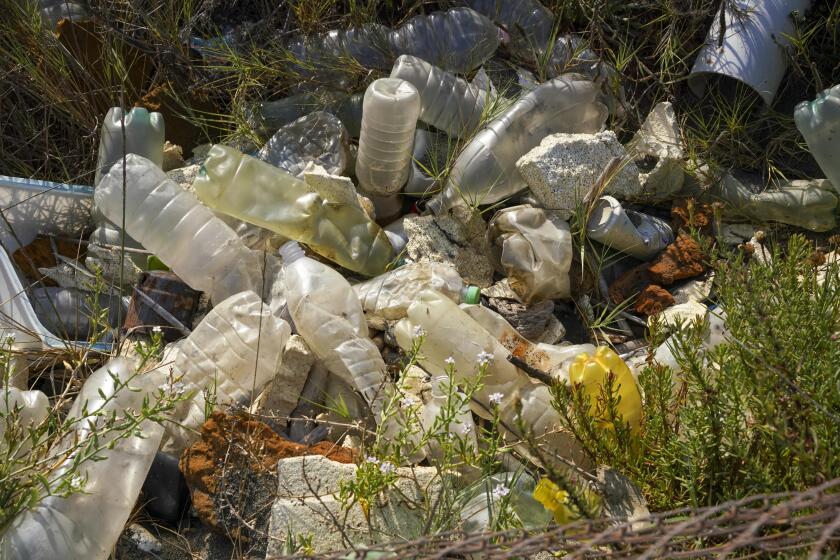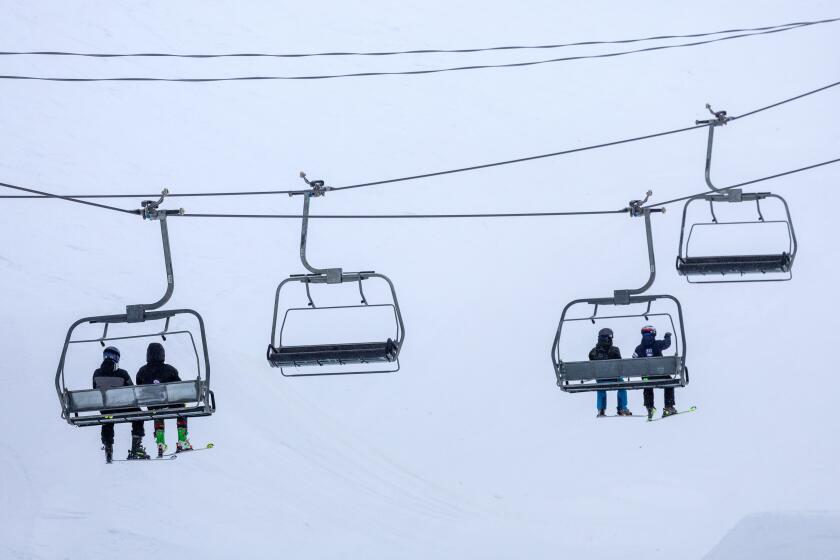Photos: Father Gregory Boyle
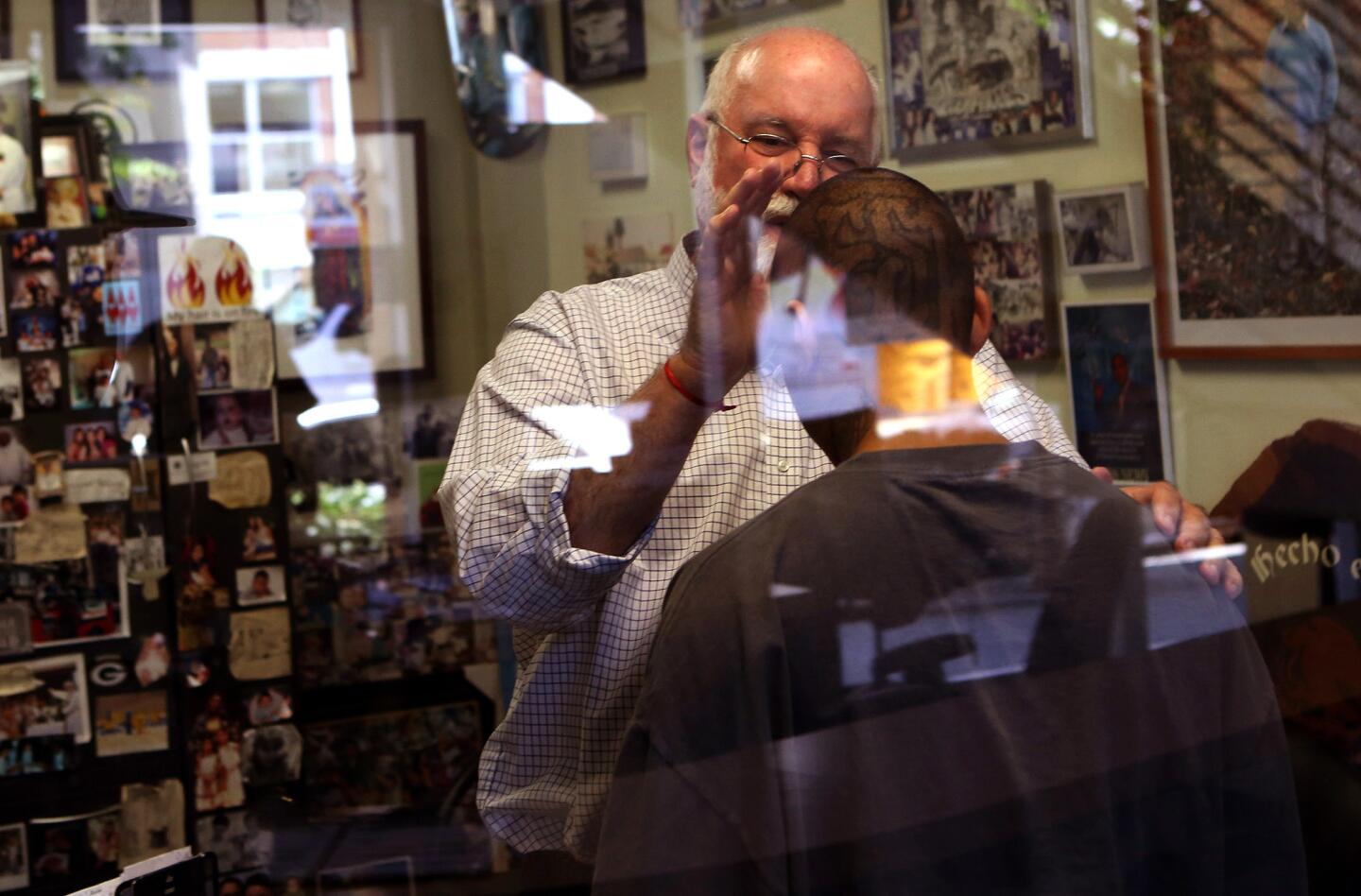
Father Gregory Boyle, founder and director of Homeboy Industries, prays over Rolando Motta, 26, in his office. Boyle created Homeboy Industries to assist high-risk youth.
(Genaro Molina / Los Angeles Times)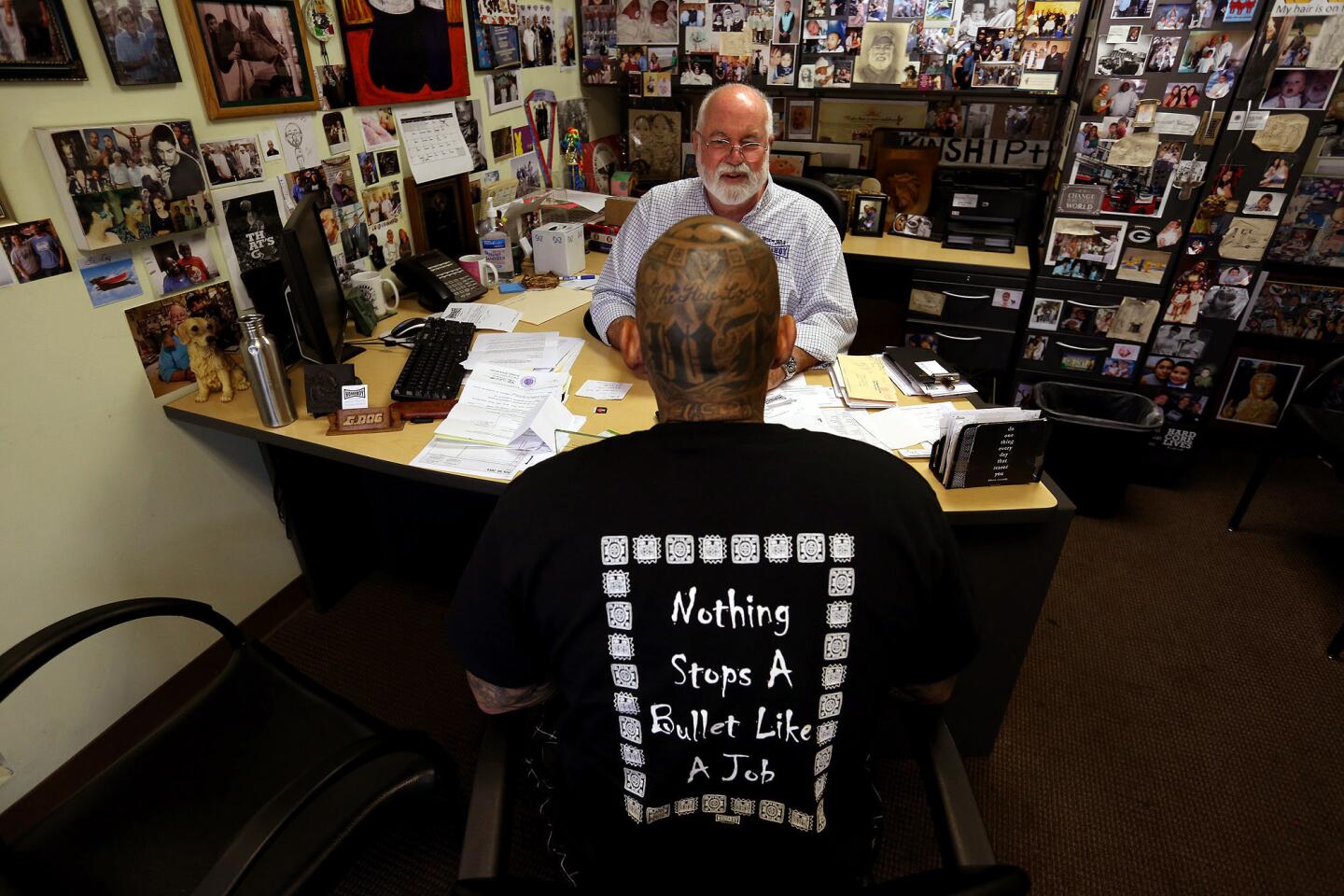
Father Gregory Boyle meets with employee Johnny Chavez at Homeboy Industries. The agency offers free services including mental health counseling, tattoo removal and work training.
(Genaro Molina / Los Angeles Times)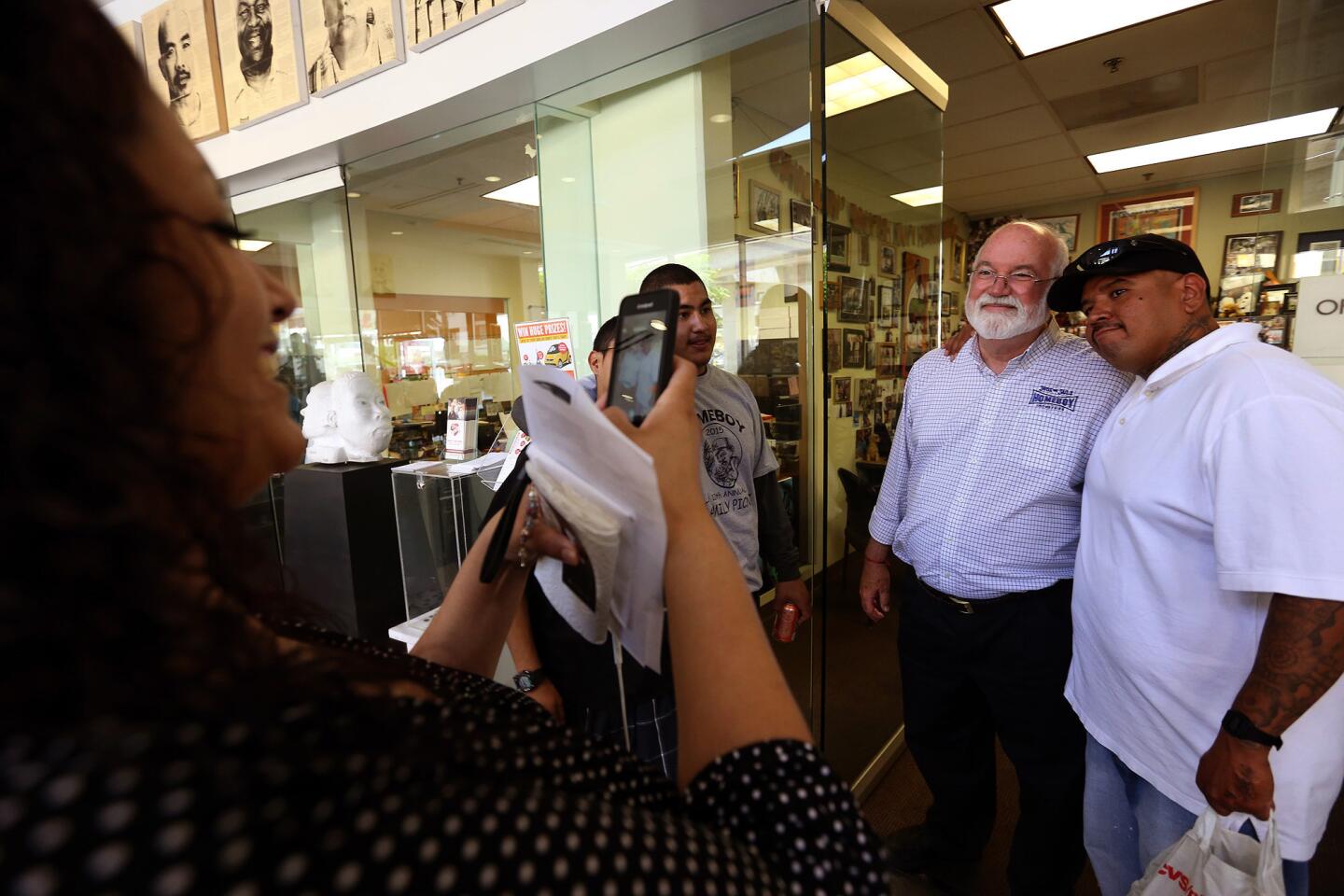
Rosemary Estrada takes a picture of Father Gregory Boyle with one of the men he mentors at Homeboy Industries.
(Genaro Molina / Los Angeles Times)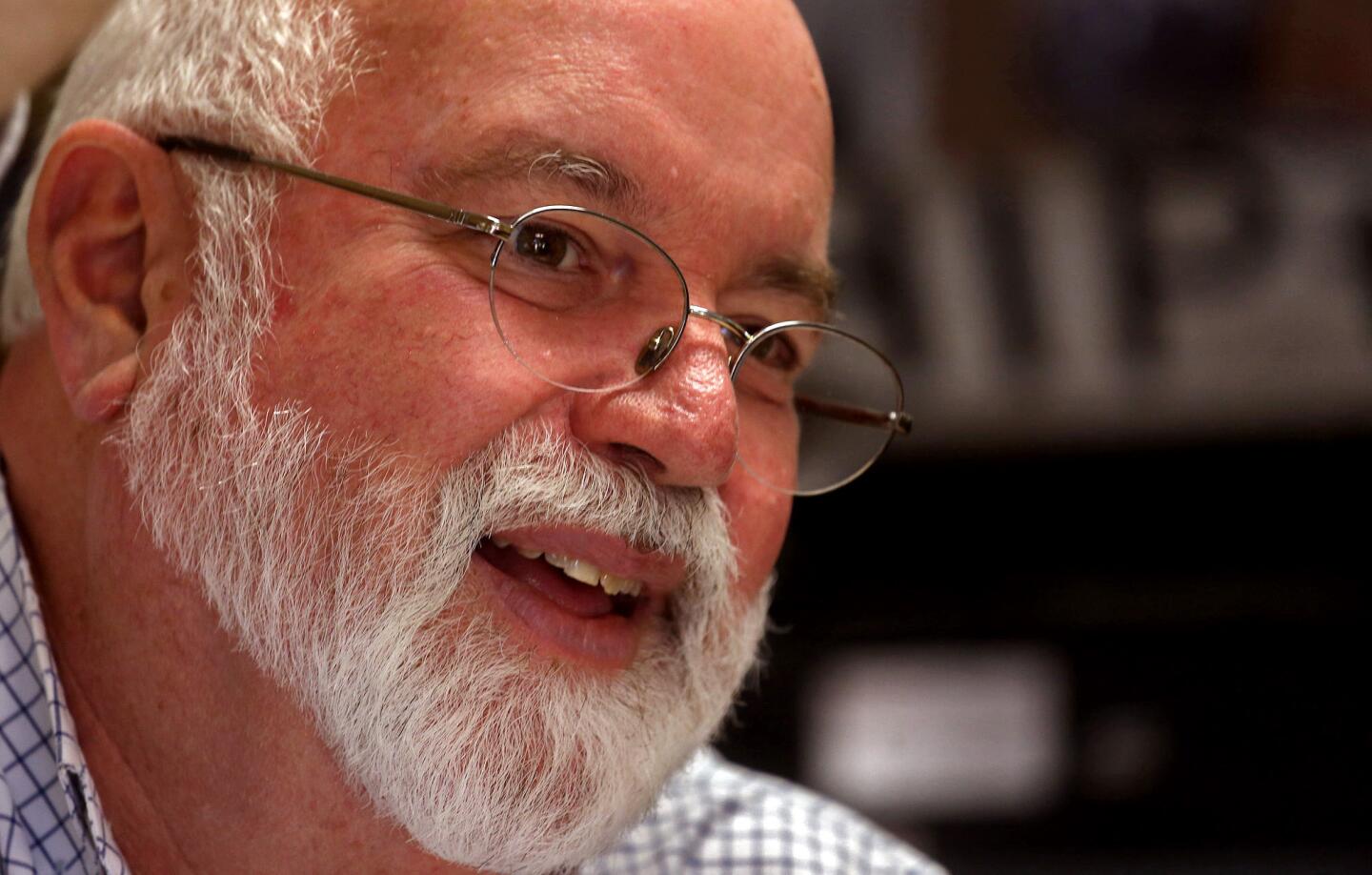
Father Gregory Boyle in the headquarters of Homeboy Industries, which he founded in 1988.
(Genaro Molina / Los Angeles Times)Advertisement
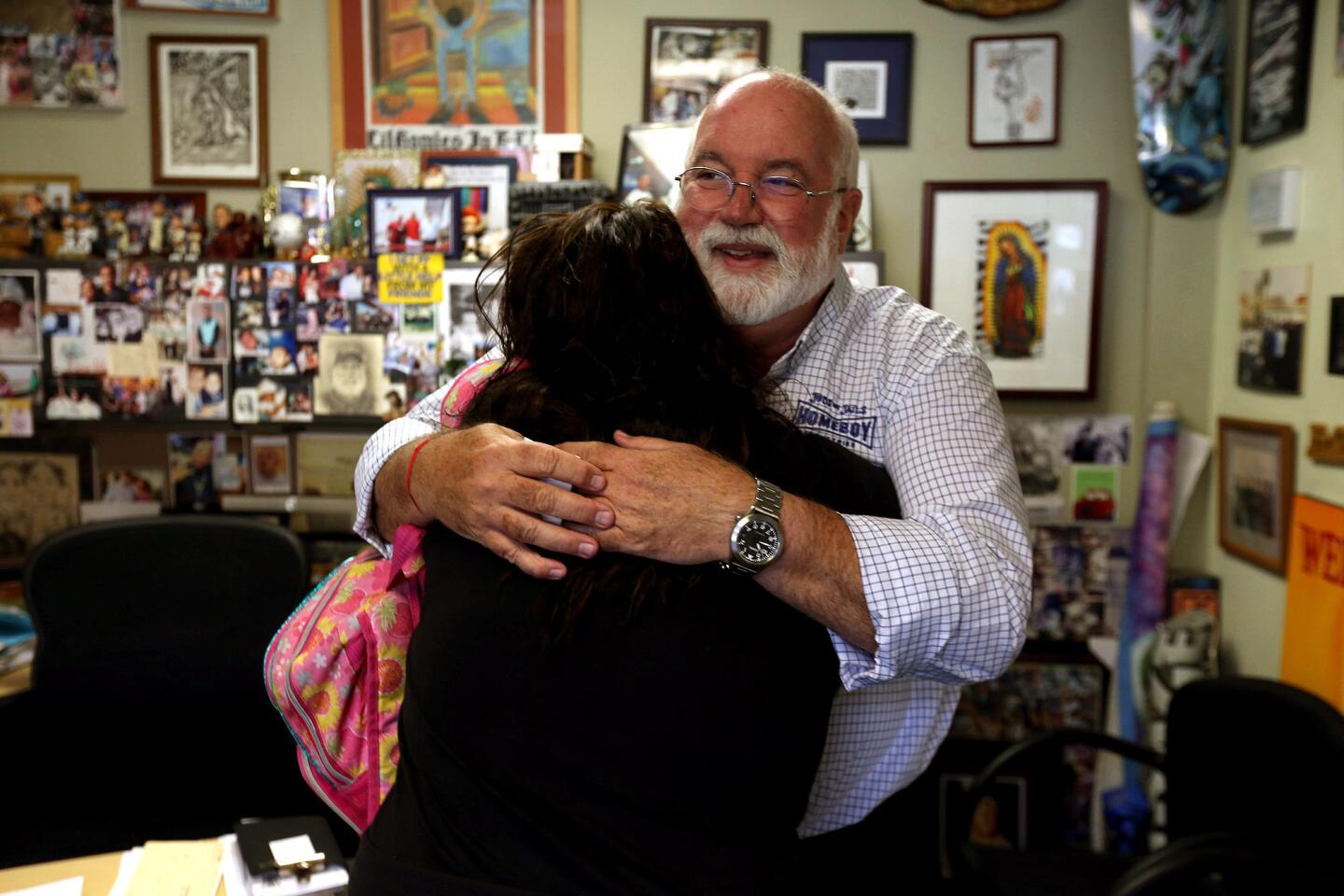
Father Gregory Boyle gives a hug to Maria Lozoya, 20, after she came by his office for advice.
(Genaro Molina / Los Angeles Times)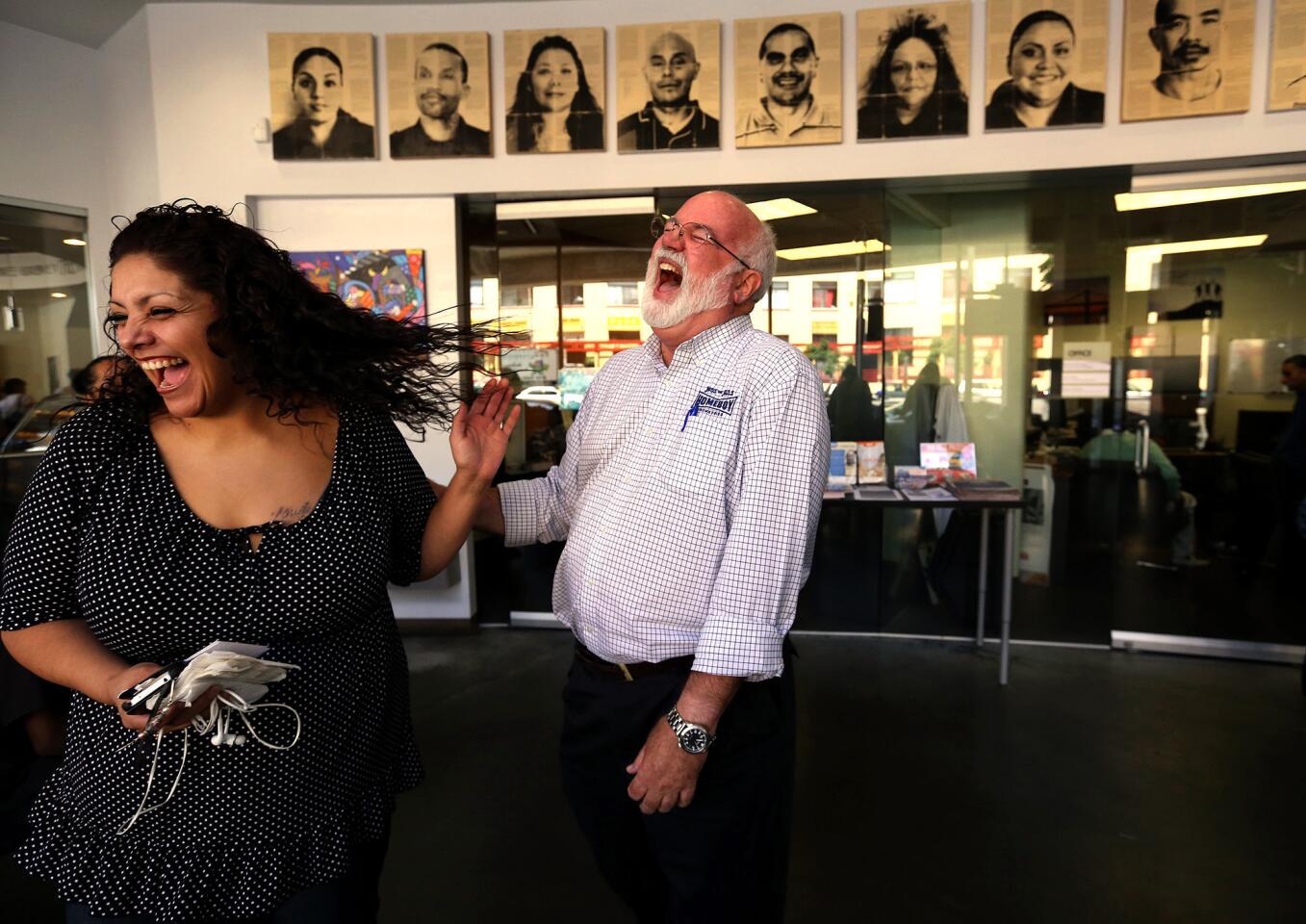
Father Gregory Boyle and Rosemary Estrada at the Homeboy Industries headquarters.
(Genaro Molina / Los Angeles Times)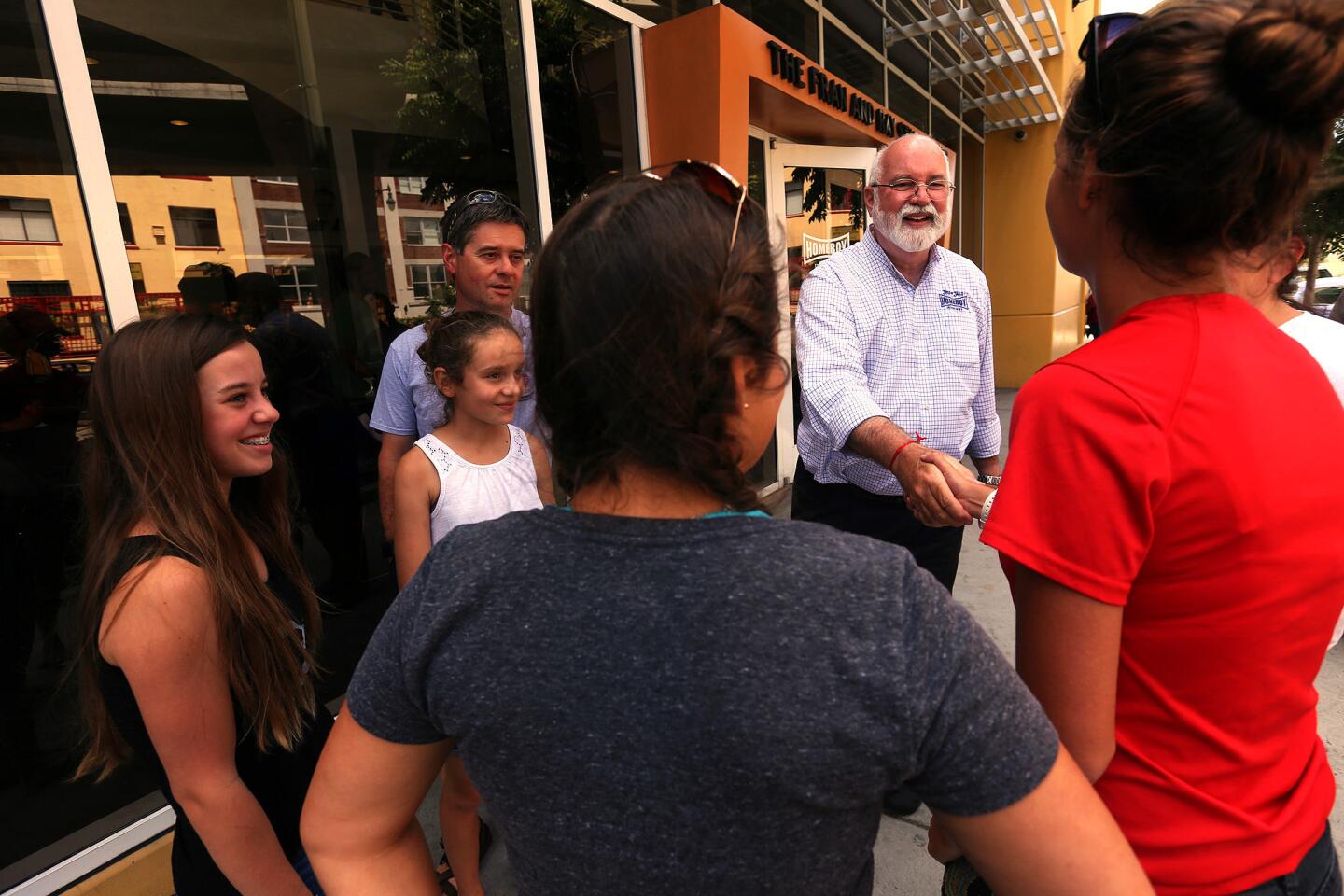
Father Gregory Boyle meets with Bella Newcomb, right, and members of the Snyder family of Santa Cruz. Newcomb is the Snyders’ goddaughter.
(Genaro Molina / Los Angeles Times)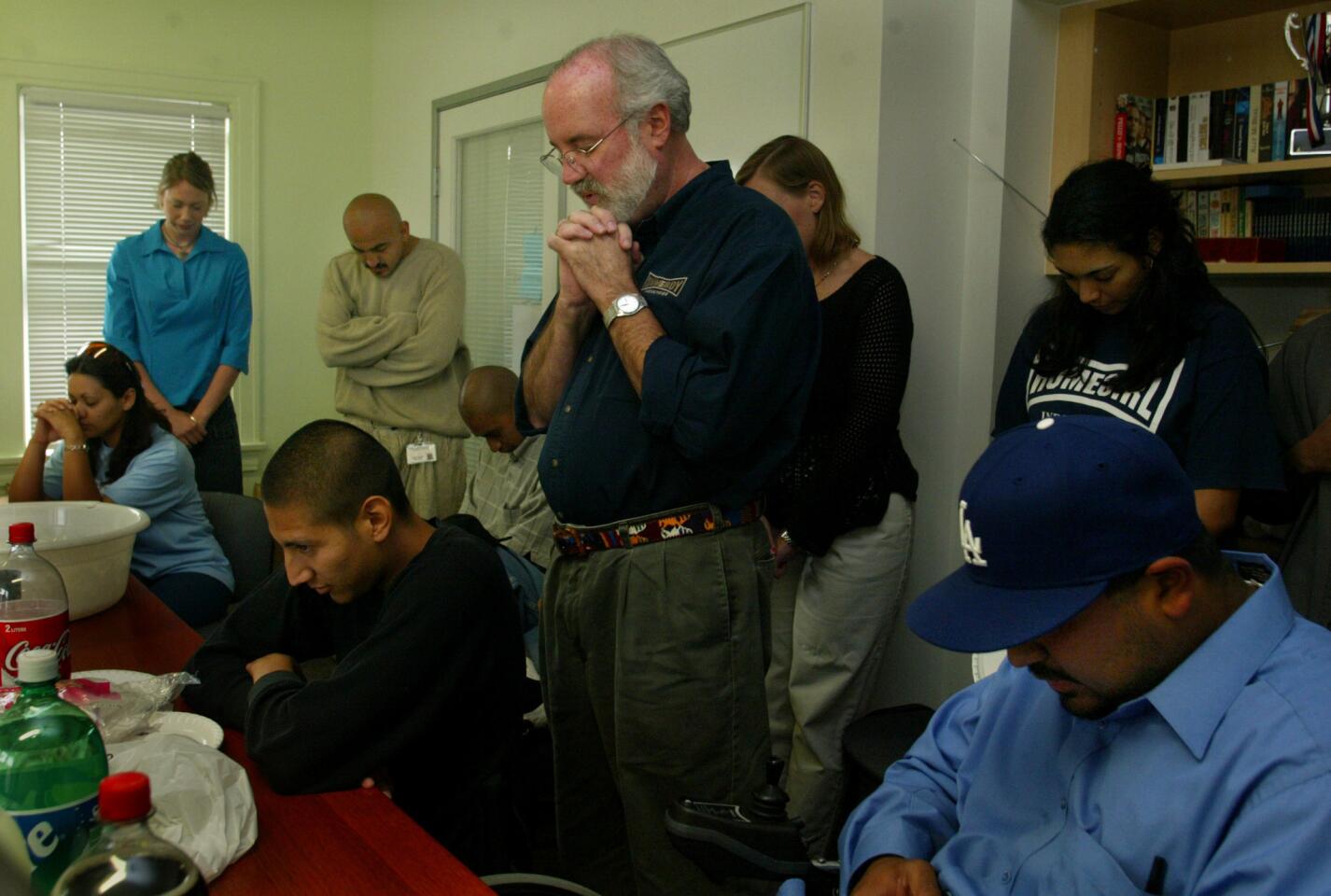
Father Gregory Boyle says a prayer during a birthday party for Luis A. Moreno at Homeboy Industries in June 2003.
(Lori Shepler / Los Angeles Times)Advertisement
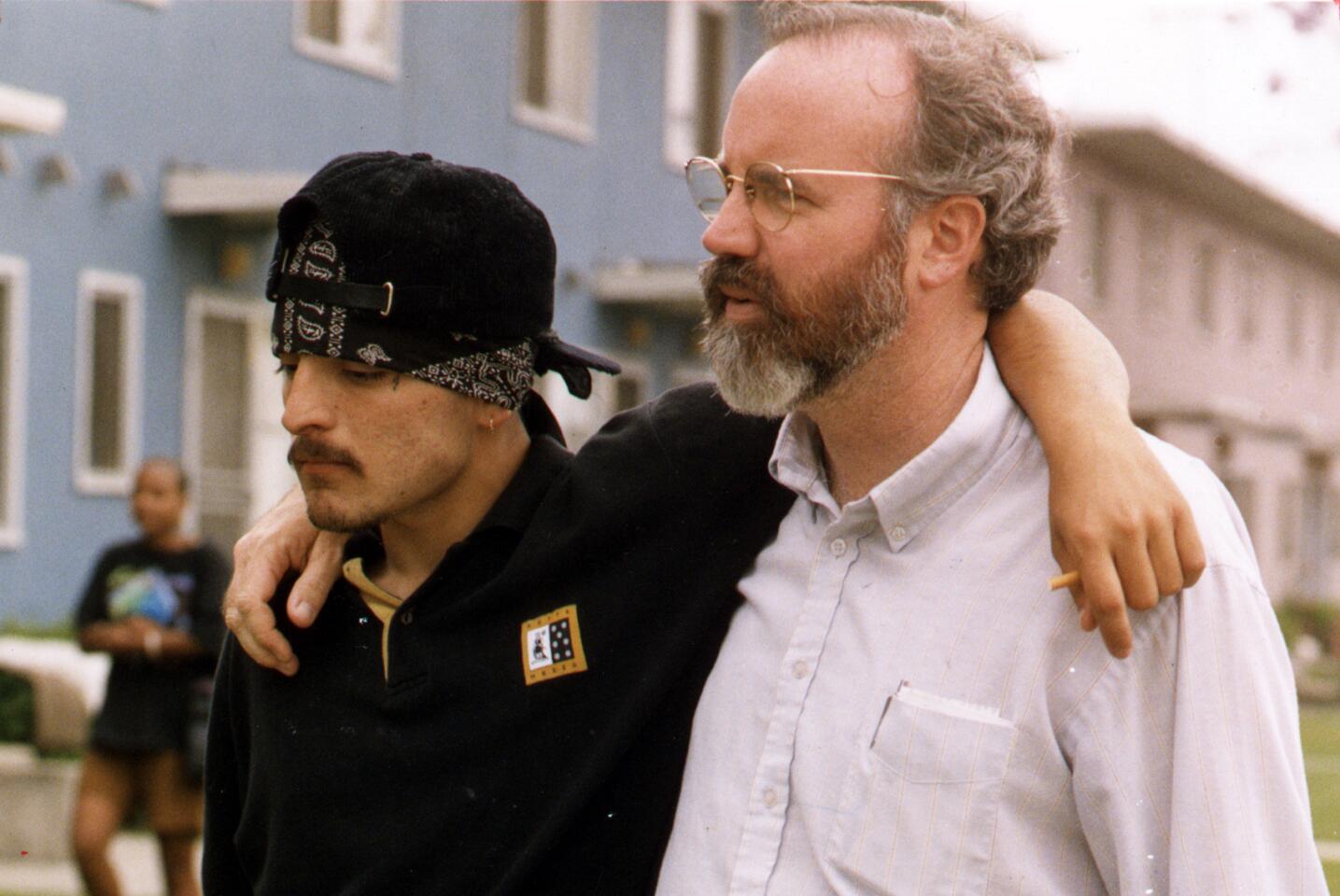
Boyle used to negotiate truces and peace treaties among warring gangs but stopped doing that years ago. Above, he meets with a gang member in March 1997.
(Gail Fisher / Los Angeles Times)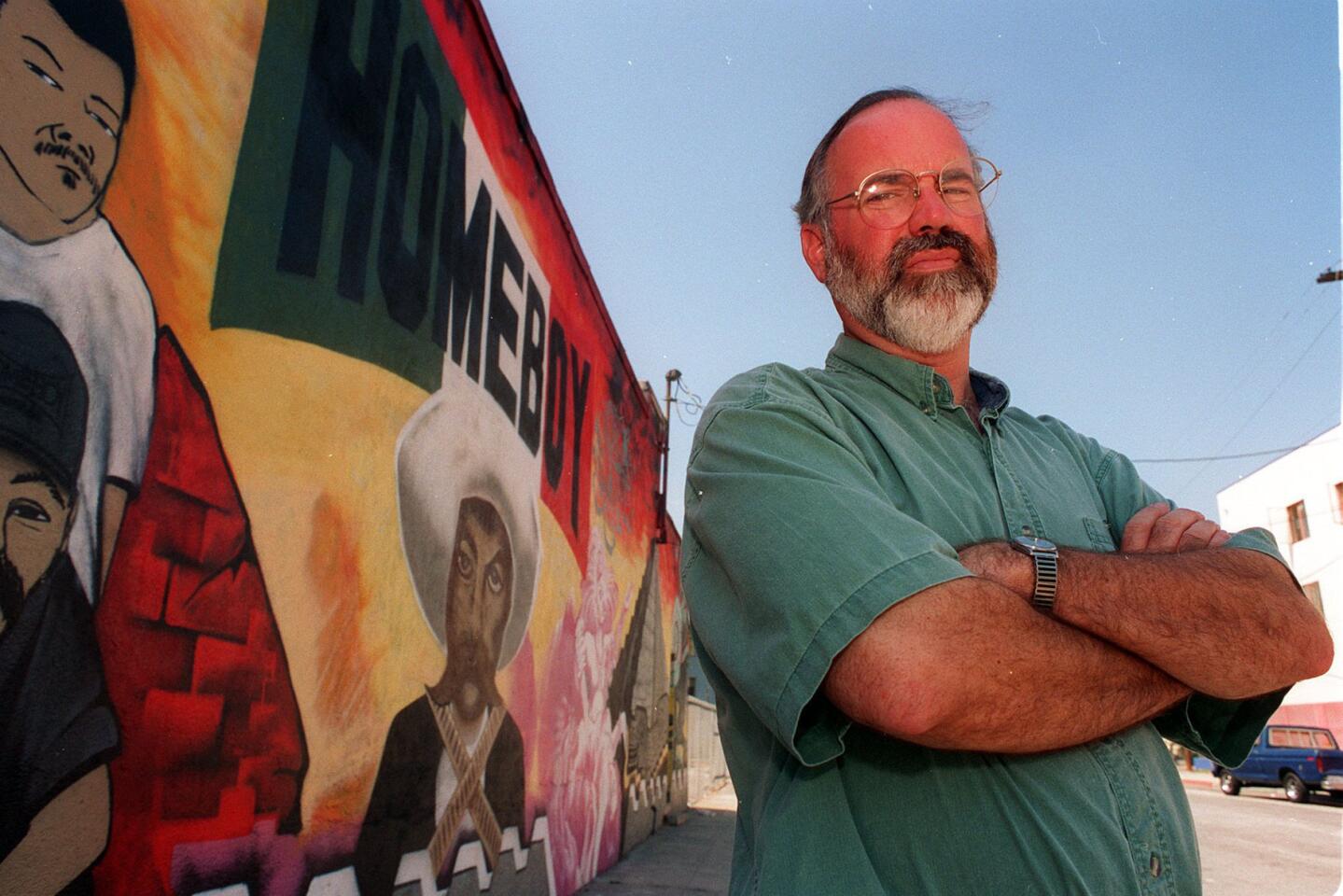
Boyle in front of the Homeboy Bakery on East 3rd Street in October 1995. It was gutted by fire in 1999 and reopened near the Civic Center in 2007.
(Lori Shepler / Los Angeles Times)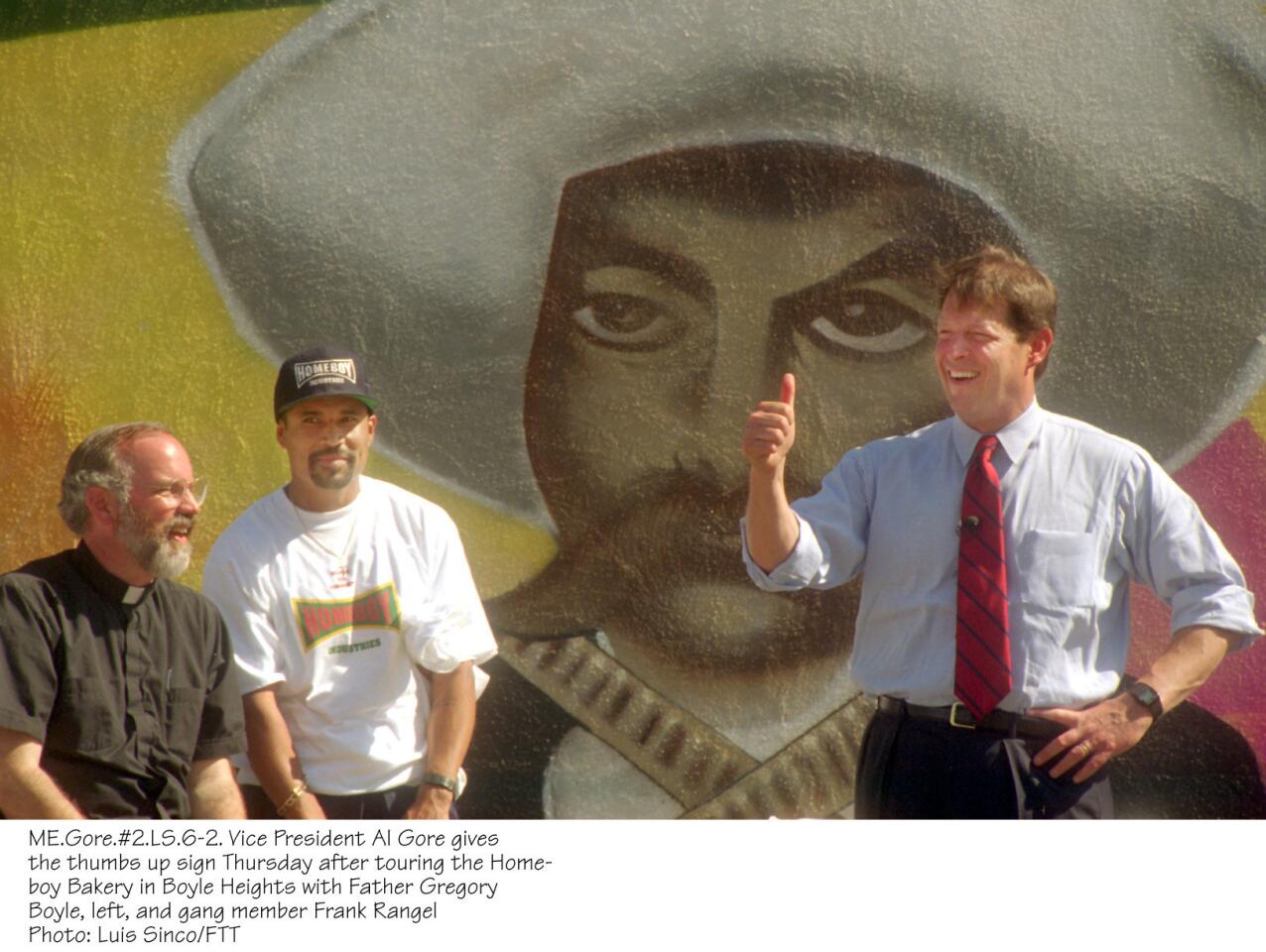
Vice President Al Gore gives the thumbs up after touring Homeboy Bakery in June 1994. At left are Boyle and gang member Frank Rangel.
(Sinco, Luis / Los Angeles Times)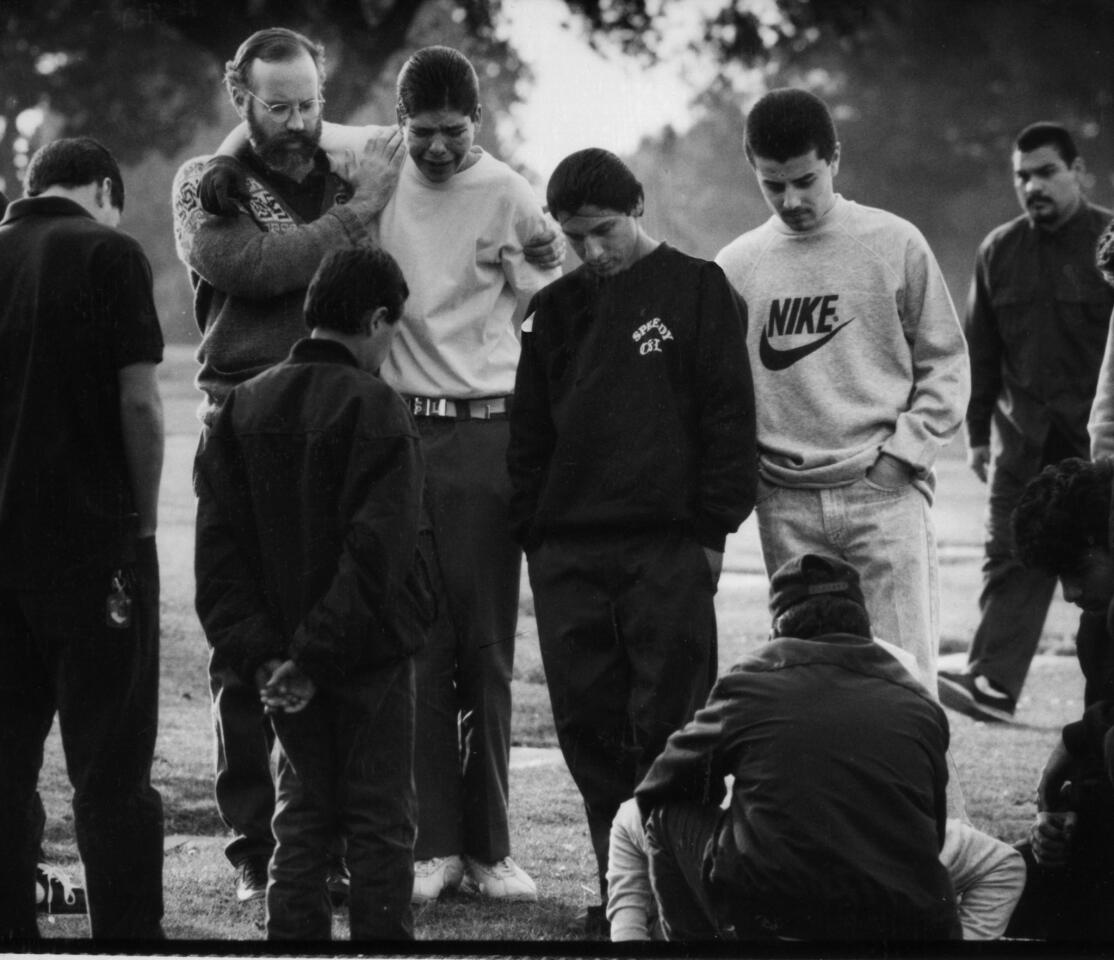
Boyle consoles gang members in February 1990 as they visit the grave of a member who was killed a few weeks earlier.
(Anacleto Rapping / Los Angeles Times)Advertisement
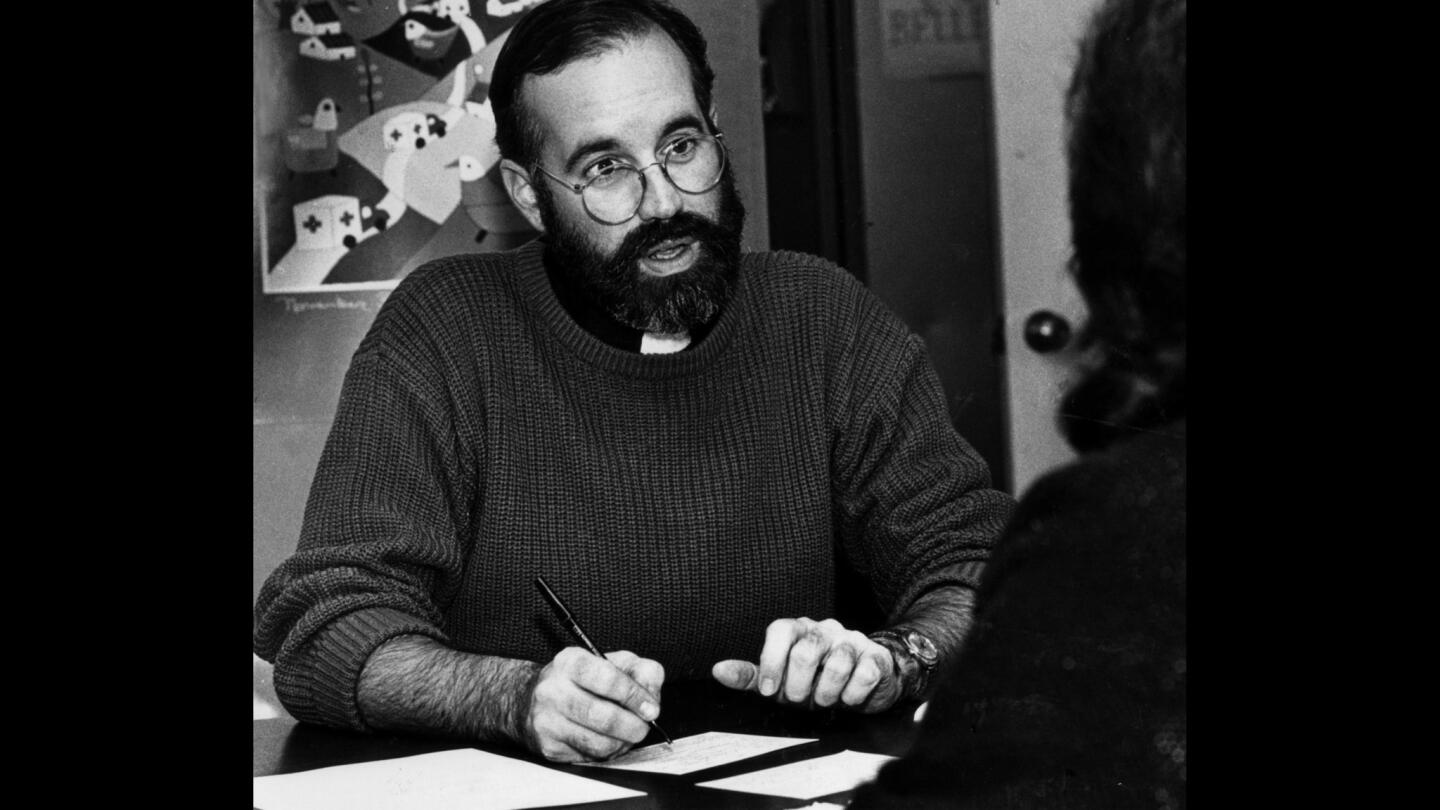
Boyle answers questions about legalization at the Dolores Mission Church in January 1986.
(Steve Dykes / Los Angeles Times)


